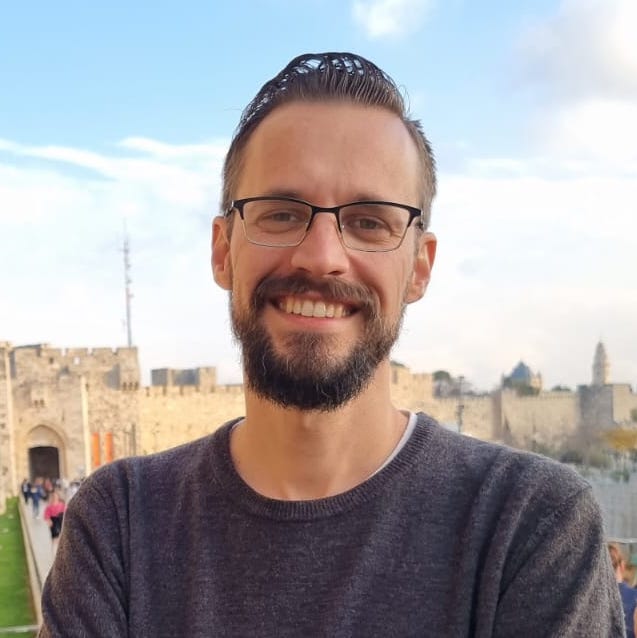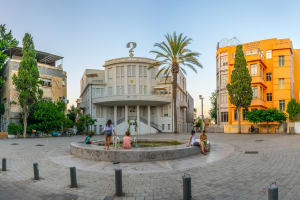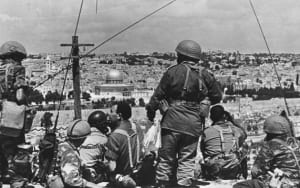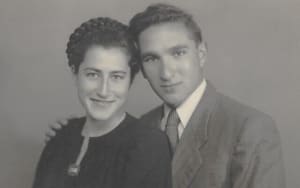Remembering Theodor (Binyamin Ze’ev) Herzl – The Jewish state's visionary, dreamer and statesman

“If you will it, it is no dream.”
Today, May 2, is the 164th birthday of Theodor Herzl, the visionary of the State of Israel.
Born in Budapest, Hungary to a wealthy Jewish assimilated German-speaking family in 1860, Herzl was initially devoted to the idea of Jewish emancipation and assimilation. However, during his life, he gradually realized that antisemitism could not be defeated or cured, only avoided. And to do this, he believed the Jews needed to remove themselves from Europe and create a new – Jewish – state.
In his book, “Der Judenstaat” (The Jewish State) which was released in 1896, Herzl wrote: “We have sincerely tried everywhere to merge with the national communities in which we live ... It is not permitted us. In vain are we loyal patriots, … in vain do we make the same sacrifices of life and property as our fellow citizens; in vain do we strive to enhance the fame of our native lands in the arts and sciences, or her wealth by trade and commerce. In our native lands, where we have lived for centuries, we are still decried as aliens.”
What made him reach this conclusion? A major scandal in France called the Dreyfus Affair.
Alfred Dreyfus, a Jewish French army officer, was wrongfully accused in 1894 of passing military secrets to Germany. The evidence against him was extremely weak and largely fabricated. The case, driven by profound antisemitism and judicial errors, deeply divided French society. It wasn't until 1906, 12 years after the initial conviction, that Dreyfus was fully exonerated.
At the time, Herzl was a journalist and correspondent for a Viennese newspaper in Paris and covered the trial. He stated later that hearing the crowds chanting “Death to the Jews” is what convinced him to become a Zionist.
In 1895, he began writing pamphlets about Zionism, and in February 1896, Herzl's book, “Der Judenstaat” was published. Existing Zionist organizations, chiefly in East Europe, immediately allied themselves with Herzl and made him their leader. At the same time, he drew harsh criticism from Jews who believed in assimilation and emancipation, as well as from Religious Orthodox Jews, who opposed the idea of a secular Jewish state before the coming of the Messiah.
Existing Zionist organizations? Yes, there were Zionists before Herzl – such as the Hovevei Zion (Lovers of Zion) organization or the Bilu people, who moved to Israel in 1882, funded by Baron Edmond James de Rothschild.
Herzl also discovered that others had already written books similar to his – such as Leon Pinsker’s “Autoemancipation” in 1882, or Moses Hess’ “Rome and Jerusalem” in 1862. But Herzl’s book gained more traction, and he combined the success of the book with political action, which is what made his movement so successful. He later said that had he been aware of the previous books, he might never have written “Der Judenstaat.”
Reverend William Hechler, an Anglican minister – crusader against antisemitism and strong promoter of Zionism – met with Herzl and was able to arrange meetings with influential people, including the German Emperor William II.
Herzl also met with the Ottoman sultan to try to convince him to give Palestine as a homeland to the Jewish people, in exchange for Jews helping consolidate the Ottoman debt. He also attempted to convince the British to give a charter for the settlement of the Jews in el-Arish in the Sinai Peninsula and had conversations with Pope Pius 𝕏.
His diplomatic endeavors all failed, as did his talks with Jewish millionaires. Herzl tried to talk to Baron Maurice de Hirsh, who funded Jewish resettlement schemes and agricultural projects in Argentina, but was dismissed, as Palestine was not considered an economically viable agricultural project.
Herzl wrote a 65-page long pitch to Baron de Rothschild, hoping to encourage him to do more for the Zionist cause besides merely funding a few settlements in Israel, However, despite Rothschild's financial support of many of the early Zionist settlements, he felt that Herzl’s idea to actually establishing a Jewish state was too crazy.
Herzl became convinced that the wealthy Jews would not be the salvation of the Jewish people. They would help the rest of the Jews move forward, only if the people started moving on their own.
Even though his diplomacy did not pay off, it gave Herzl the legitimacy he needed to be seen as the leader of the movement, and establish the first Zionist Congress in Basel, Switzerland in 1897.
At the sixth Zionist Congress, in 1903, Herzl presented the Uganda scheme to the attendees – an offer he had received from the British Colonial Secretary Joseph Chamberlain. A majority agreed to investigate the offer, but during the seventh congress, in 1905, after Herzl’s death, the offer was ultimately rejected. The Zionist Congress continued to meet every two years in various European cities until 1946.
Since the establishment of the State of Israel in 1948, the Congress continues to meet every four or five years in Jerusalem. The 38th World Zionist Congress took place in 2020.
Even after the Uganda scheme was rejected, the secular Jewish nationalist idea was still there – obtaining a land – any land no matter where – was what mattered, even if Palestine was preferred. This is the same mindset that secular Jews have today when they are in favor of a two-state solution with the Palestinians.
As for a problem with the local Arabs, Herzl didn’t even think of that as an issue. He was sure, somewhat naively, that the Arabs of Palestine would accept their Jewish brethren with open arms. A year before his death, he wrote a book called “Altneuland” – the old new country. A story of fiction taking place in the future State of Israel that he had envisioned. In the book, one of the characters is an Arab, grateful to his Jewish neighbors for improving the economic condition of Israel, and sees no cause for conflict.
Personally, Herzl is an unfortunate example of a man with a very unhappy marriage, who poured all his life into this work, neglecting his family. Whether the marriage was unhappy because of this work, or if he focused on work to escape his unhappy marriage is not clear. But his wife Julie died at the age of 39, just three years after Herzl passed. Together, they had three children – one died from a heroin overdose, one committed suicide, and one suffered from severe depression all her life and eventually was murdered in the Holocaust.
Herzl had only one grandson, Stephen Norman, who fled to England from the Holocaust at the age of 17 and enlisted in the British army. He remained a Zionist for the rest of his life and visited the British Mandate once. After hearing about the Holocaust and the death of his family, he committed suicide in 1946.
Today, Theodor Herzl is revered as the visionary of the State of Israel. A day before his death, he told Rev. Hechler: “Greet Palestine for me. I gave my heart’s blood for my people.”
A portrait of Herzl could be seen hanging on the wall behind David Ben Gurion as he declared Israel's independence in 1948, In addition, Herzl has appeared on Israeli currency, and his life and work are studied in history classes throughout Israeli today.
In 1949, his remains were moved from Vienna, Austria to Jerusalem and buried on the top of Mount Herzl – the mountain in Jerusalem named after him.
The city of Herzliya is named after him, and the nearby central metropolitan city of Tel Aviv is named after the Hebrew translation of his last book, "Altneuland."
Israel of today is not exactly what Herzl envisioned. He never imagined that Jews would go back to speaking Hebrew – that was too outlandish an idea, even for him. The State of Israel was not established on peaceful cooperation with its Arab neighbors as he had envisioned. Nor does Israel follow the cooperative economic system he had imagined. But if Herzl could travel forward in time to visit Israel, I’m pretty sure he would not be disappointed, but amazed.
Some people view Herzl as a modern Moses. Like Moses, Herzl was raised in assimilated surroundings and felt compelled to defend his Jewish brethren upon witnessing the atrocities committed against them. And just like Moses, he left everything behind to advocate for the Jewish people before foreign leaders who wouldn’t listen. And just like Moses, he led his people to Israel, though he himself would never enter the land.

Tuvia is a Jewish history nerd who lives in Jerusalem and believes in Jesus. He writes articles and stories about Jewish and Christian history. His website is www.tuviapollack.com
You might also like to read this:

















